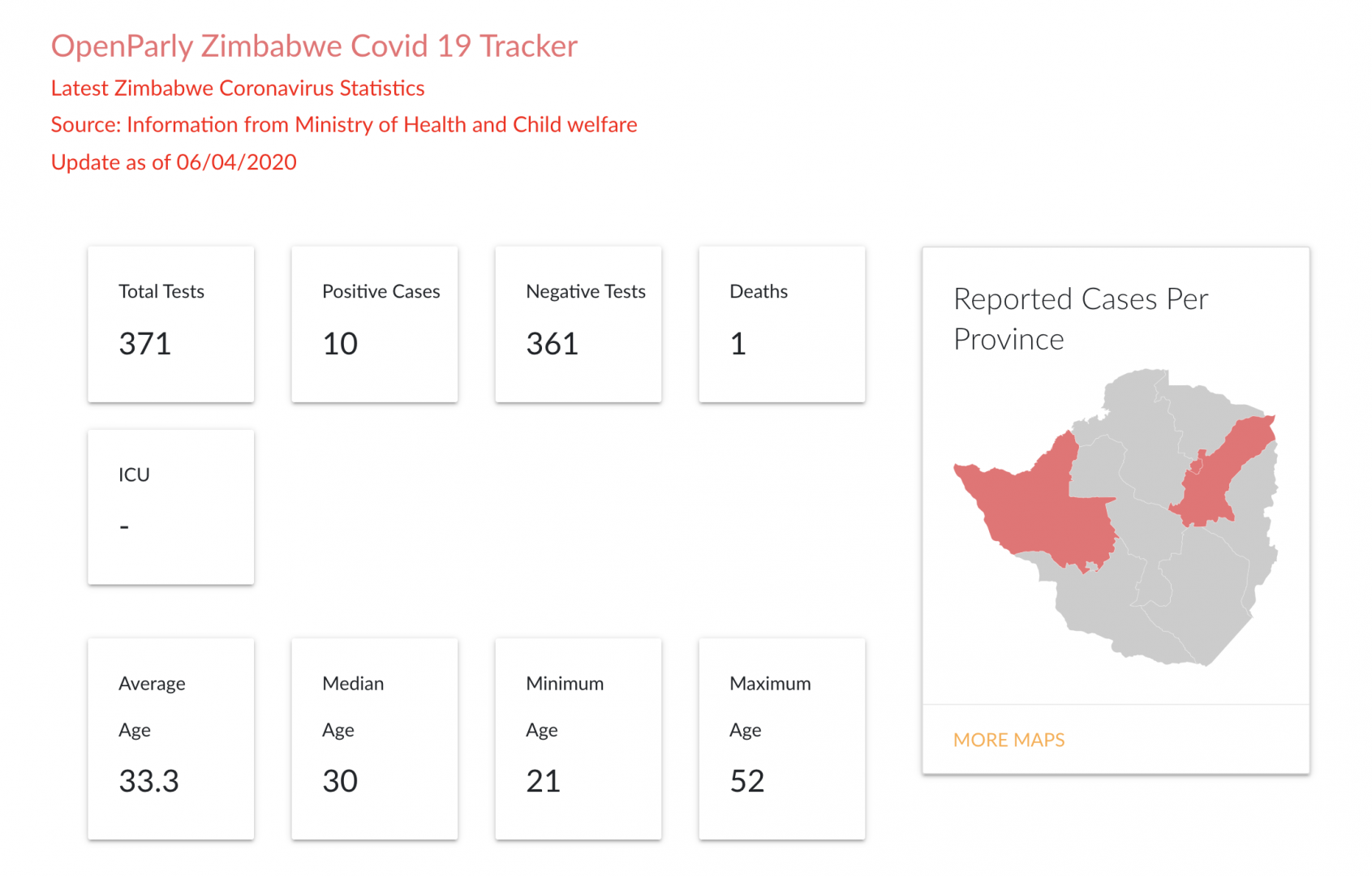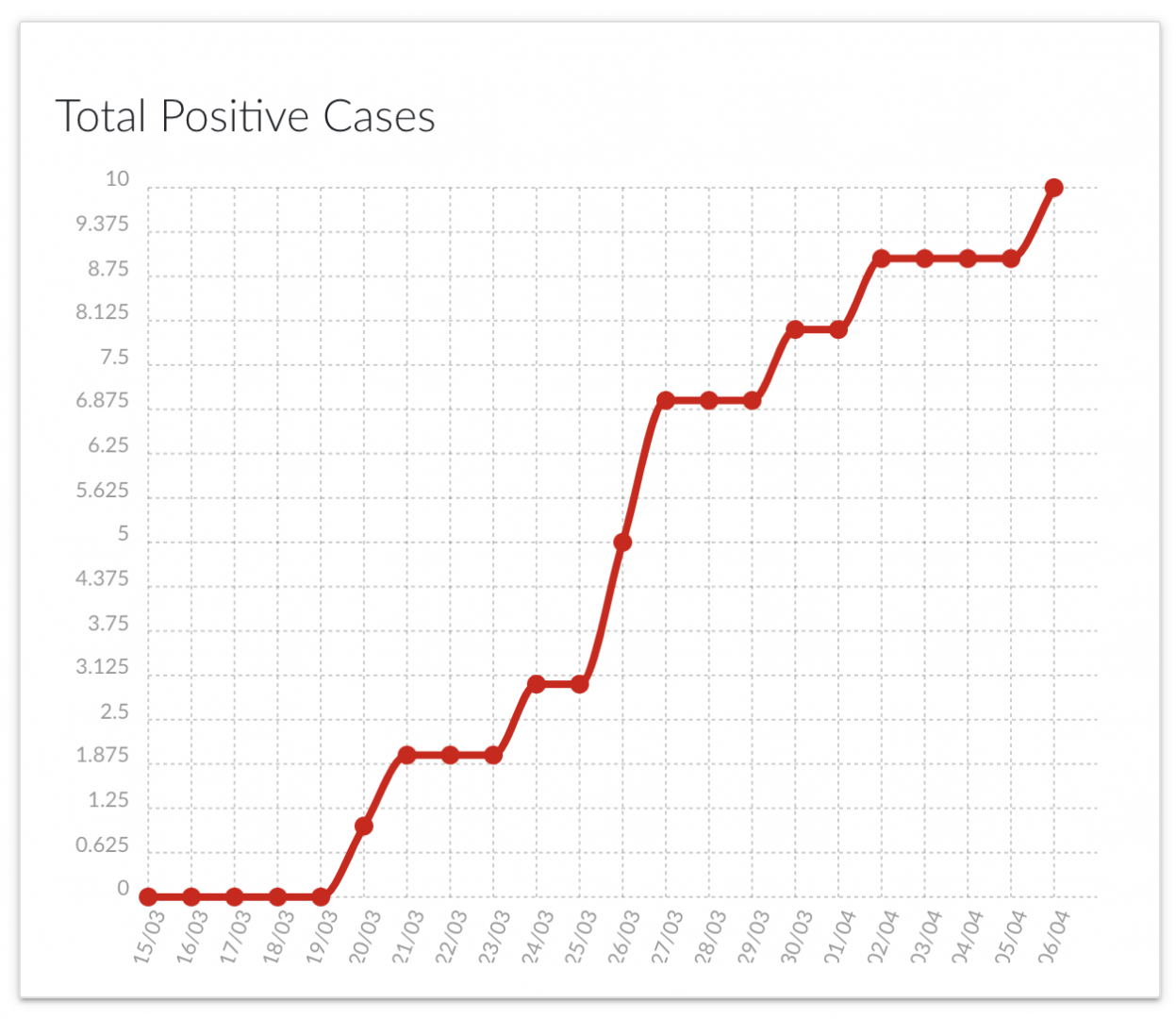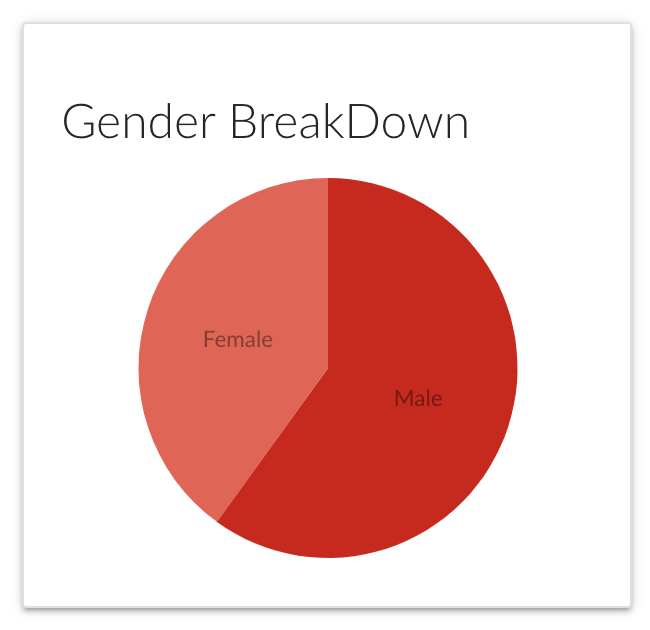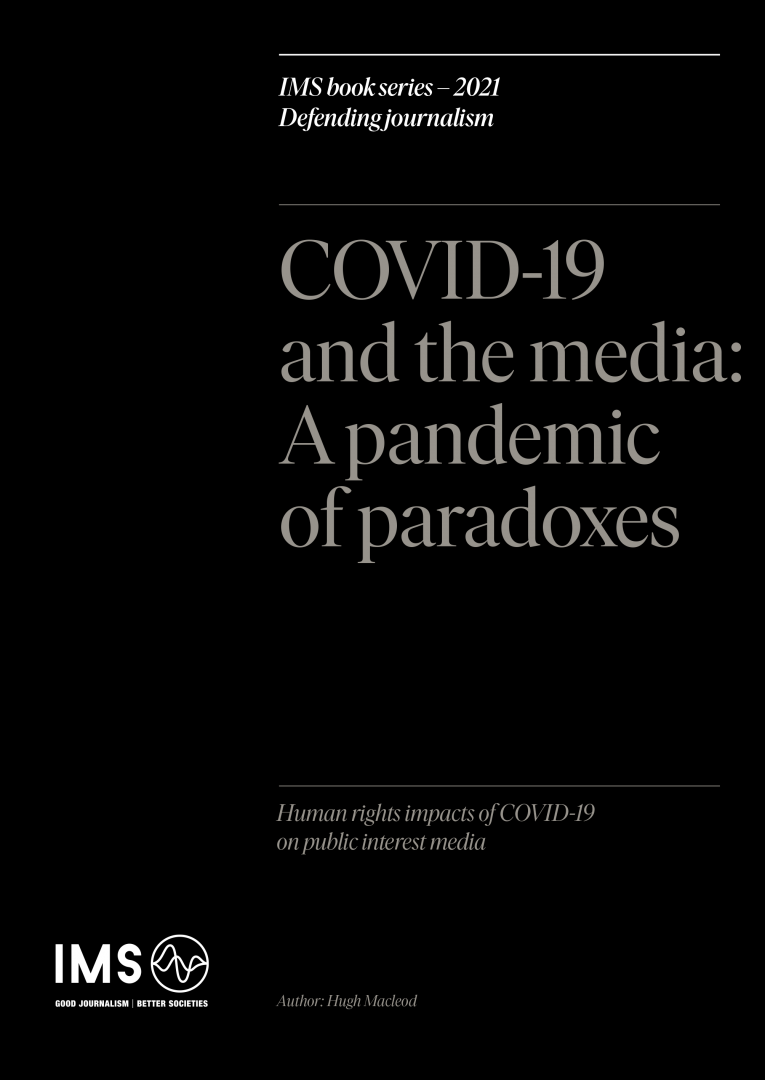ALEXANDRA, SOUTH AFRICA MARCH 31: The Gauteng government deployed a team of health workers to the Stjwetla informal settlement to test people for COVID-19 on day 5 of National Lockdown on March 31, 2020 in Alexandra, South Africa. A resident of this neighborhood tested positive for coronavirus. He left Gauteng while waiting for his results, ignoring instructions from officials but has since been located and quarantined in Limpopo. According to media reports, President Ramaphosa announced a major campaign to improve the testing for coronavirus testing cases, confirming 10,000 field workers would be deployed to go door-to-door. (Photo by Gallo Images/Alet Pretorius)
Zimbabwe: Covid-19 tracker to prevent pandemic spread
In Zimbabwe, creative organisation Magamba has launched a Covid-19 tracker allowing people to follow how the pandemic is progressing in the country, but more importantly to see if they have been in locations where people with the virus were present.
Fojo Media Institute spoke with developer Munya Dodo
How does the Zimbabwe Covid-19 Tracker work?
Munya Dodo: The application has two functions: a Covid-19 Data Tracker and a Personal Tracker. Through the first function, data from the Ministry of Health is aggregated and visualised to make sense of how the pandemic is progressing in Zimbabwe. The data is visualised in bar graphs and line graphs as well as a map, which shows where the disease is spreading by province, and can even drill down to a hyperlocal level.
The Personal Tracker utilises Google Maps history, allowing users to upload their history to see if they have been in locations where the virus was present, for example airports, clubs or restaurants.



Munya Dodo
MAGAMBA DEVELOPER
How does the Personal Tracker collect data about where the virus is present?
Munya Dodo: We harvest data from reports from the Ministry of Information, news reports and other sources, and mark the place on our Covid-19 Personal Tracker map. For example, we know that the first victim was journalist Zororo Makamba, and reports are that he visited a club at Sam Levy’s Village, so that place now marked on the map.
Are there people who have voiced privacy concerns relating to Personal Tracker?
Munya Dodo: No, no one has voiced any concern, because the data is only visible to the user, and hence not public. There may be more questions when we get more users, but I don’t think it will be of concern.
How many people are currently using the Personal Tracker?
Munya Dodo: Fifty people have used it so far. We are looking at mapping out more locations as the pandemic unfolds to make it more effective. More locations are being updated from the 10 patients that have been tested positive.
Is there an app for the Personal Tracker?
Munya Dodo: Not yet. Hopefully when we release the software on GitHub it will allow other developers to take the initiative further as an app, WordPress Plugin, Whatsapp ChatBot, etc, as it requires a lot of data mapping. We currently have a small team working on the project and we will be able to add more functionality to the tracker once all the existing ones are complete.
How did Magamba develop the Zimbabwe Covid-19 Tracker?
Munya Dodo: When Covid-19 hit Zimbabwe, information from the Ministry of Health wasn’t being shared widely, so we decided to tap into our group of hackaton web developers to create a platform where Covid-19 data can be tracked. We will allow developers access to the software for free, so they can develop and create new tools that can be used in the dissemination process.
If others are interested in developing a similar tracker, what should they do?
Munya Dodo: We are currently working on finishing this version and making it easier for people to input data. We will put the software on GitHub for free. For now, if someone wants to develop a similar tracker for use in their country they can contact me at munya@magambanetwork.com or on WhatsApp +26377604727


Magamba is a strategic partner of the ZimMedia21 programme, implemented by the Fojo Media Institute and International Media Support, and funded by the Swedish International Development Agency (Sida).

Covid-19
A TURNING POINT FOR INDEPENDENT MEDIA?
Around the world, Covid-19 is re-awakening people to the vital role that independent media plays in their societies.
From Afghanistan to Zimbabwe, many independent media outlets are seeing their audiences grow as people realise they need quality information to navigate the crisis.

